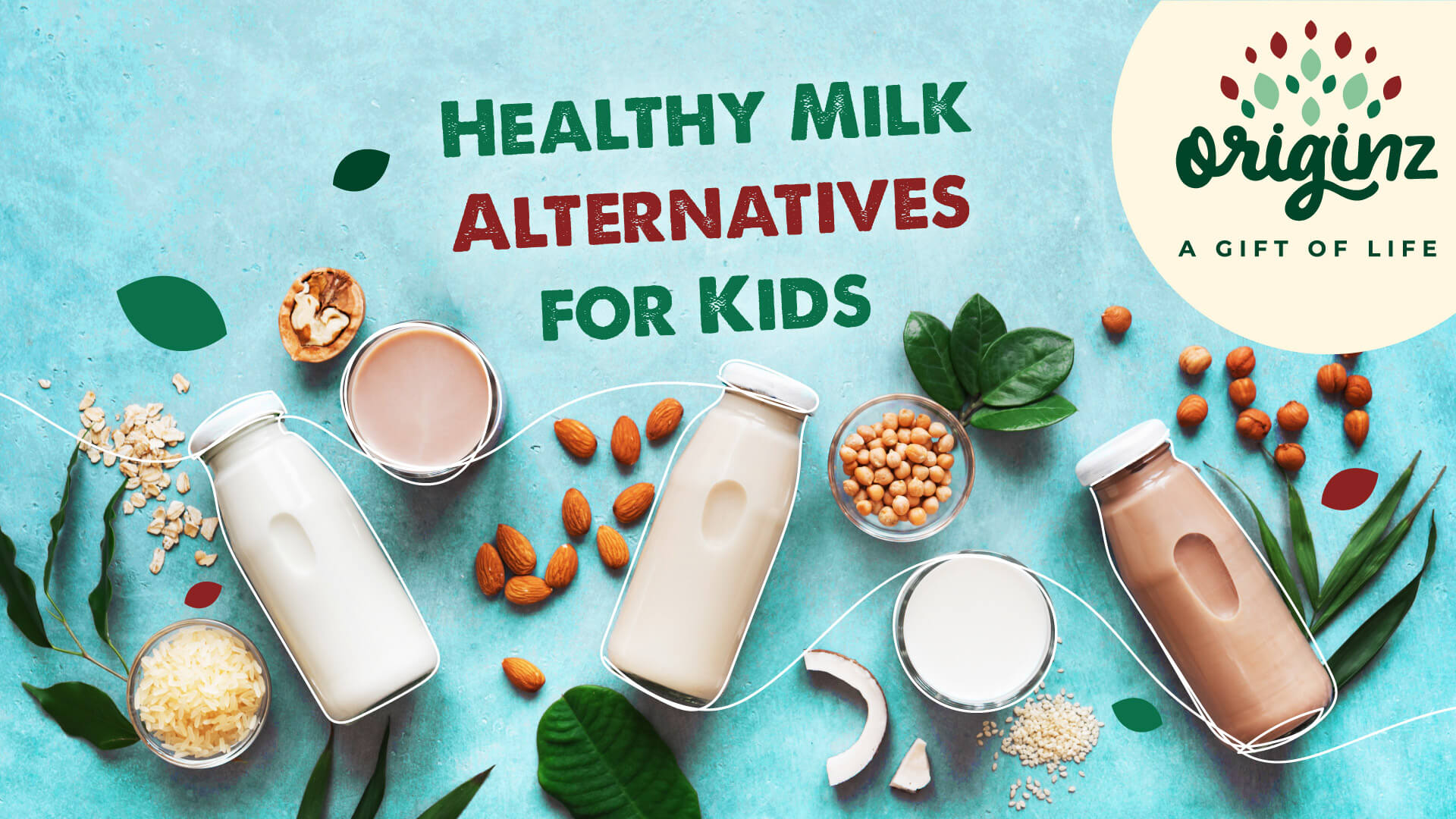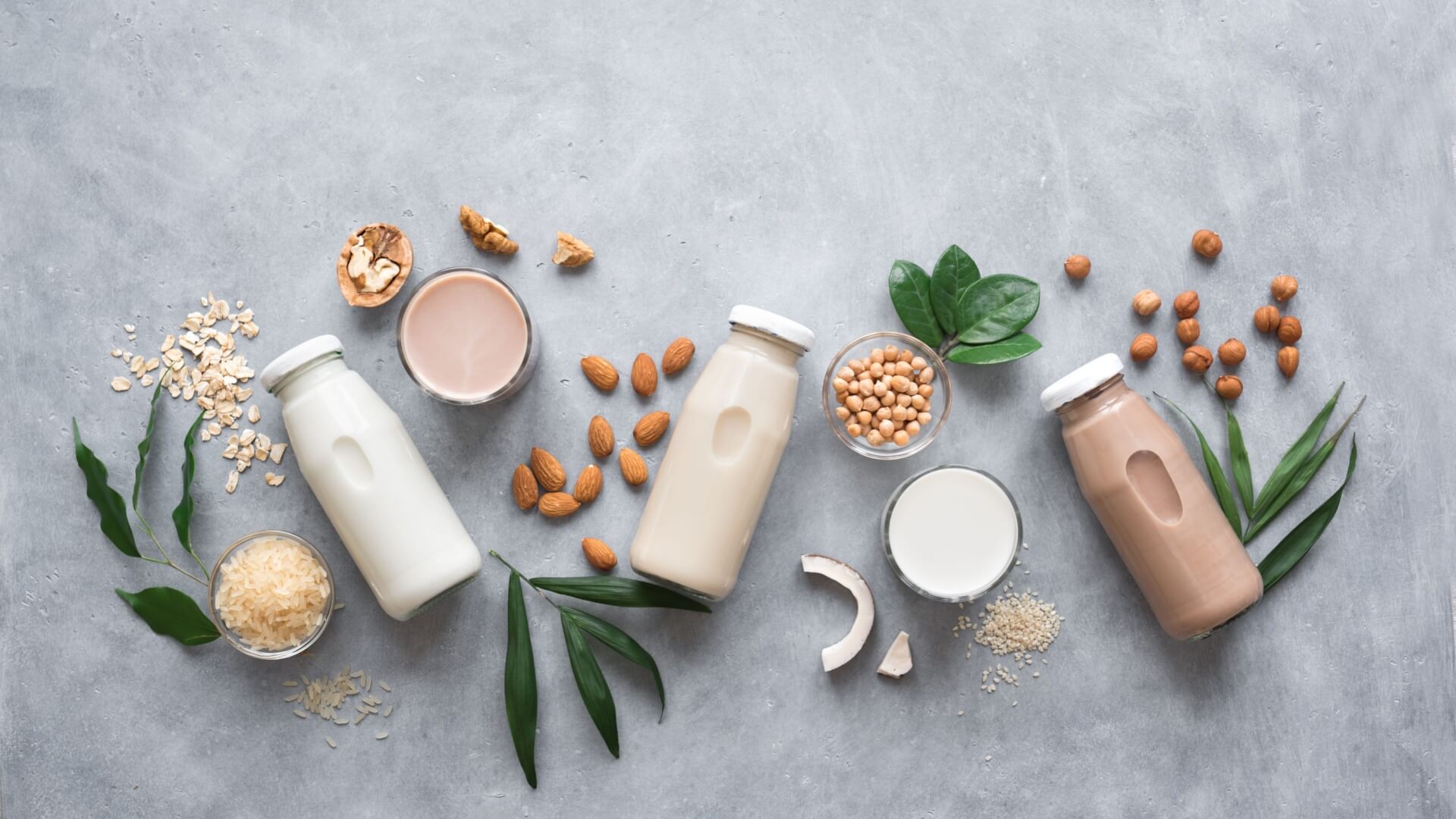
Healthy Milk Alternatives for Kids
In today's health-conscious era, parents are increasingly looking for nutritious options for their children, particularly when it comes to dairy consumption. With a notable rise in lactose intolerance, dairy allergies, and a growing preference for plant-based diets, lactose-free milks such as almond milk, coconut milk, and soya milk are becoming essential in many households. This blog aims to explore these alternatives in depth, highlighting their nutritional benefits and offering guidance on how to integrate them into your child’s daily diet.
The Growing Popularity of Milk Alternatives
The shift towards lactose-free milks like almond milk, coconut milk, and soya milk represents a significant move towards inclusive dietary practices, catering to individuals with diverse needs, including lactose intolerance. Almond milk, soya milk, and coconut milk have risen to the forefront of this movement, gaining popularity for their unique flavours and health benefits.
Almond Milk: A Heart-Healthy Option
Almond milk is lauded for its creamy texture and nutty taste, making it a favourite among children and adults alike. The benefits of almond milk extend beyond its pleasant flavour. It is a heart-healthy alternative, naturally devoid of cholesterol and saturated fats. Rich in essential nutrients such as vitamin E, magnesium, and calcium (when fortified), almond milk supports bone health and provides antioxidant protection. This makes it an excellent choice for kids, promoting overall health and well-being.
For parents interested in introducing the benefits ofalmond milk to their family, an
organic grocery brand like Originz can be a treasure trove of high-quality options.
Coconut Milk: A Creamy Delight
Coconut milk, with its creamy consistency and sweet flavor, adds a tropical twist to various dishes. It is packed with vitamins C and E, iron, and magnesium, essential for a child’s development. However, due to its high saturated fat content, moderation is key. Coconut milk can be a delicious addition to smoothies, desserts, and savory dishes, offering a way to diversify your child's palate while ensuring they receive a balanced diet.
Soya Milk: Rich in Protein and Omega-3s
Soya milk stands as a robust source of protein, making it particularly beneficial for children's growth and development.
Organic soya beverages, fortified with vitamins and minerals, present a nutritional profile that rivals that of cow's milk. The inclusion of omega-3 fatty acids is a notable benefit of soya milk, supporting brain development and cardiovascular health. Its versatility in recipes and as a drink makes soya milk a convenient and healthful choice for families.
Oat Milk Benefits: A Fibre-Rich Alternative
Oat milk is celebrated for its smooth texture and mild, slightly sweet taste. Among the various milk alternatives, it is distinguished for its rich fibre content and beta-glucans, which contribute to heart health. One of the notable oat milk benefits is its contribution to heart health through cholesterol management. Additionally, the benefits of oat milk include being a rich source of dietary fibres, enhancing digestive health for children. Oat milk is often enriched with vitamins and minerals, making it an excellent dietary addition for children. It's a particularly good choice for those seeking to increase their fibre intake or who prefer a mildly flavoured milk alternative. The top choice, of course, is Originz’
organic oat beverage – organic foods are far less processed and retain more nutrients, meaning you reap far more of the benefits of oat milk.
Integrating these milk alternatives into your child’s diet can be a delightful exploration of new tastes and textures. You can find a host of
delicious recipes using almond milk, coconut milk, and soya milk (try this
bubble tea recipe!), ensuring meals are not only nutritious but also appealing to young palates. For example, oat milk can be a fantastic base for morning smoothies, creamy soups, or homemade pancakes, providing a nutritious start to the day. Creative use of milk alternatives in cooking and baking can also help children with dietary restrictions feel included and catered to, making meal times enjoyable for everyone.
FAQs
Are milk alternatives suitable for all children?
Milk alternatives are generally suitable for most children, but individual allergies or dietary needs should be considered. For example, children with nut allergies should avoid almond milk. Consulting with a paediatric nutritionist can provide personalized advice.
Can milk alternatives fully replace cow's milk in a child's diet?
Milk alternatives can provide many of the same nutrients as cow's milk, especially when fortified, and the benefits of oat milk, soya milk and others are comparable as well. However, it's essential to ensure a varied diet to cover all nutritional bases, including adequate intake of protein, calcium, and vitamins.
How can I encourage my child to try milk alternatives?
Introducing milk alternatives gradually, starting with mixing them into familiar foods or choosing flavoured varieties, can help. Making the introduction fun and involving your child in the selection process can also increase their willingness to try new options.
By considering milk alternatives like almond milk, coconut milk, soya milk, and oat milk, parents can offer their children a range of nutritious and delicious choices. These alternatives not only cater to various dietary needs and preferences but also contribute to a diverse and balanced diet. With careful consideration and creativity, integrating milk alternatives into your child's diet can be both simple and rewarding, ensuring they reap the health benefits these options provide.
Further Reading,





